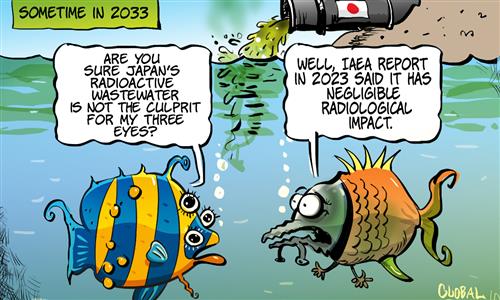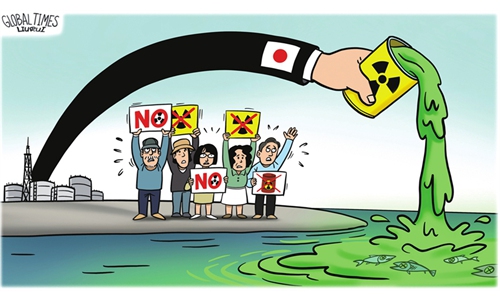IN-DEPTH / IN-DEPTH
Japan’s decision to dump nuclear-contaminated wastewater into sea sparks worldwide backlash
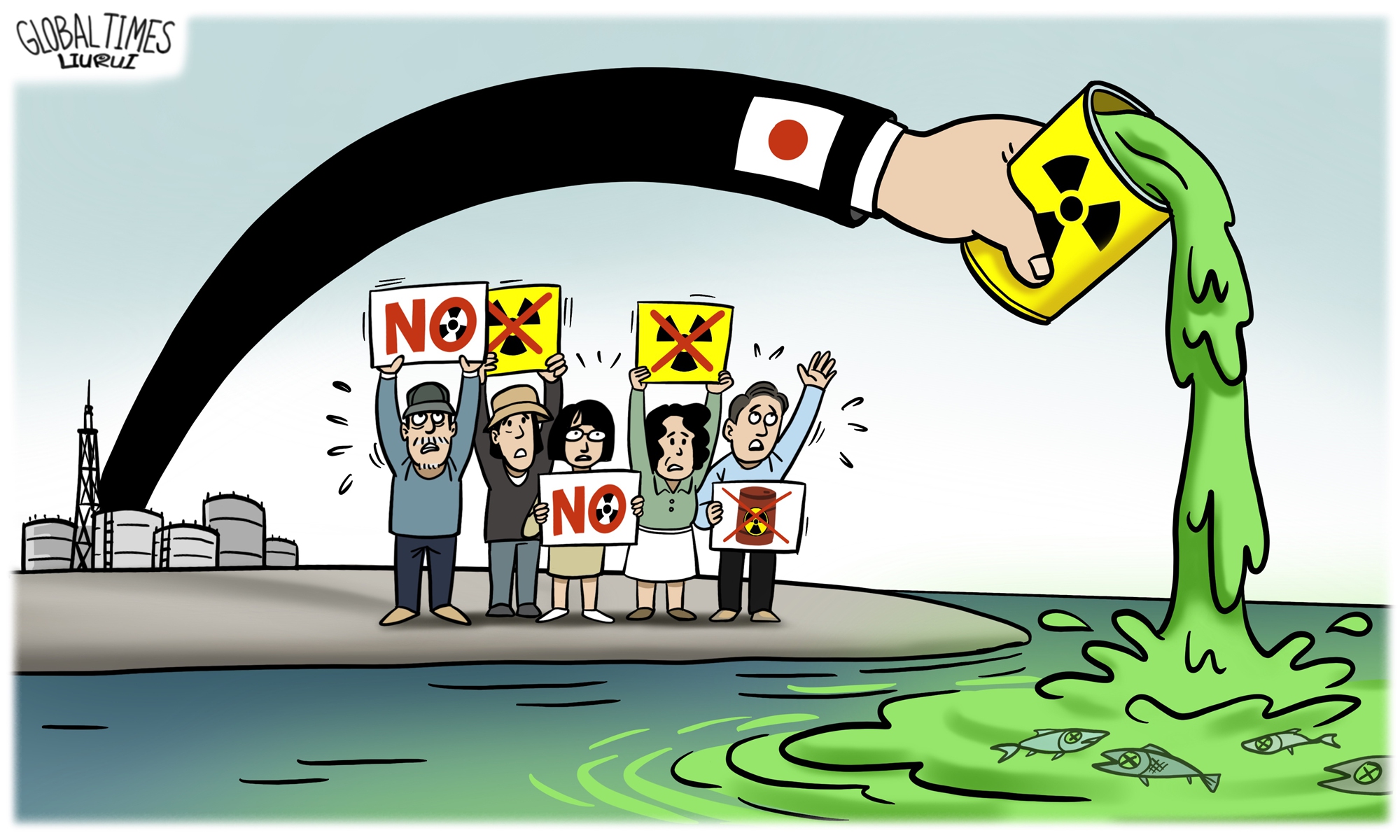
Japan's dangerous move. Illustration: Liu Rui/GT
On Thursday afternoon, the Chinese Ministry of Foreign Affairs once again expressed its strong opposition after the International Atomic Energy Agency (IAEA) hastily released the comprehensive assessment report on the dump plan of nuclear-contaminated wastewater of Japan's Fukushima Daiichi Nuclear Power Plant.
Wang Wenbin, the spokesperson of the Ministry of Foreign Affairs further reiterated three points at a press conference on Thursday. Firstly, Japan focuses more on saving cost instead of safeguarding marine environment and protecting people's life and health. Second, Japan did not have full consultation with the international community especially with stakeholders. Third, the dumping plan is a gamble with no precedent and it is full of uncertainties.
After the IAEA released its assessment report on Tuesday, relevant government ministries in China expressed strong opposition.
China's Ministry of Ecology and Environment (National Nuclear Safety Administration) said it has deployed environmental monitoring for marine radiation levels and will issue an early warning in time to effectively safeguard the interests of the country and the public health in case of any abnormalities.
Deng Ge, secretary general of the China Atomic Energy Authority (CAEA) told the media on Tuesday that the safety report by the IAEA on the Japanese government's plan to dump Fukushima nuclear-contaminated wastewater failed to fully reflect the opinions of all experts involved in the review and the conclusions were limited and biased.
Liu Senlin, an expert with the CAEA, who participated in the IAEA's technical working group for the assessment, said that the report, released in the name of the IAEA director general, was released without sufficient consultation with the experts in the technical working group.
He believes that the report released by the IAEA does not represent the IAEA's recognition of the legitimacy of Japan's decision to dump the treated wastewater into the ocean, nor does it represent the IAEA's approval or authorization of Japan's dump of nuclear-contaminated wastewater.
According to media reports, the Japanese government plans to start the release of treated radioactive wastewater from the defunct Fukushima Daiichi nuclear plant as early as this August, bolstered by the IAEA's latest report to greenlight its plan.
Chinese Ministry of Foreign Affairs on Wednesday announced that competent departments of the Chinese government will enhance marine environment monitoring and strengthen inspection and quarantine of imported seafood and other products to safeguard people's health and food safety.
Although the IAEA said the plan "meets safety standards," the public, including local fishermen in Japan, and people in neighboring countries remain skeptical and their unease has not subsided. For example, around 33,000 people from Fukushima, Iwate and Miyagi in Japan have signed a petition protesting the dumping of nuclear-contaminated wastewater into the ocean, making a total of 254,000 signatures collected in these places since 2022 urging the Japanese government to suspend the plan, Japan's Kyodo News reported. Many in Seoul, South Korea also gathered Wednesday in the central Gwanghwamun square to protest Japan's dumping plan despite the IAEA's endorsement, South Korean media reported, noting that the protest has continued for weeks.
In response to Japan's decision to discharge nuclear-contaminated wastewater from the Fukushima Daiichi nuclear power plant into the sea, the Global Times has produced a series of cartoons condemning Japan's irresponsible behavior from different perspectives, such as public opposition, the radioactive contamination to marine organisms, and the Japanese government's selfish behavior against the global community.
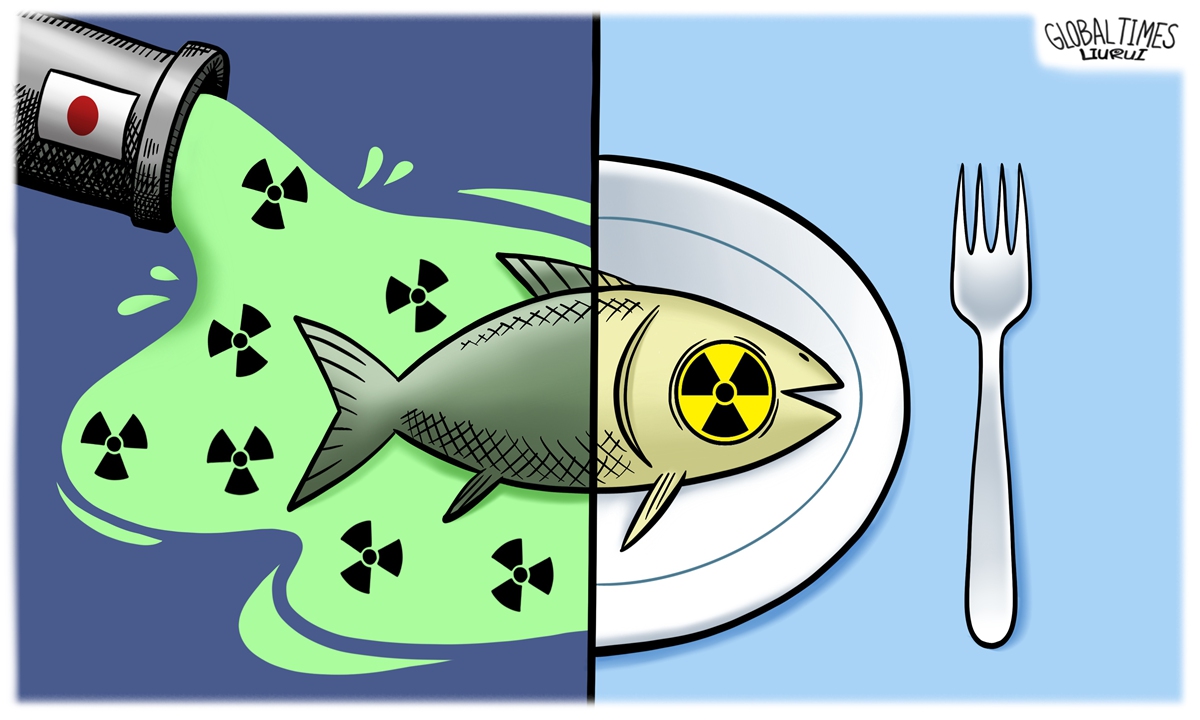
To eat, or not to eat? Illustration: Liu Rui/GT
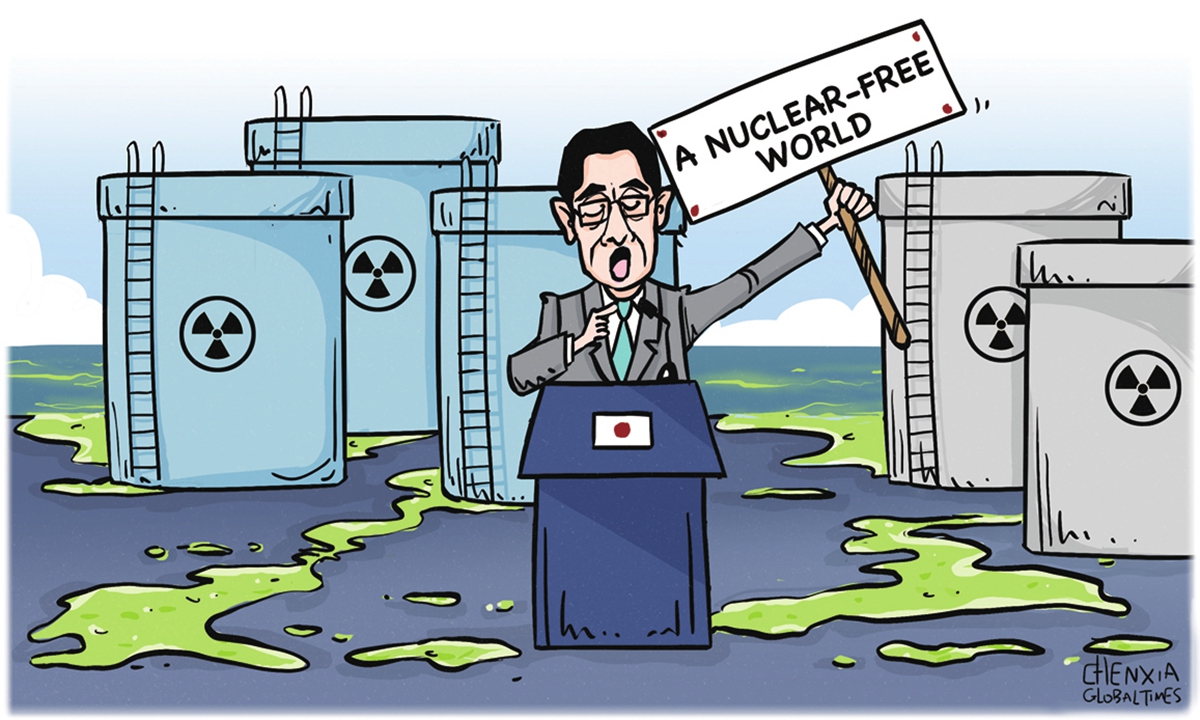
"A Nuclear-free world." Illustration: Chen Xia/GT
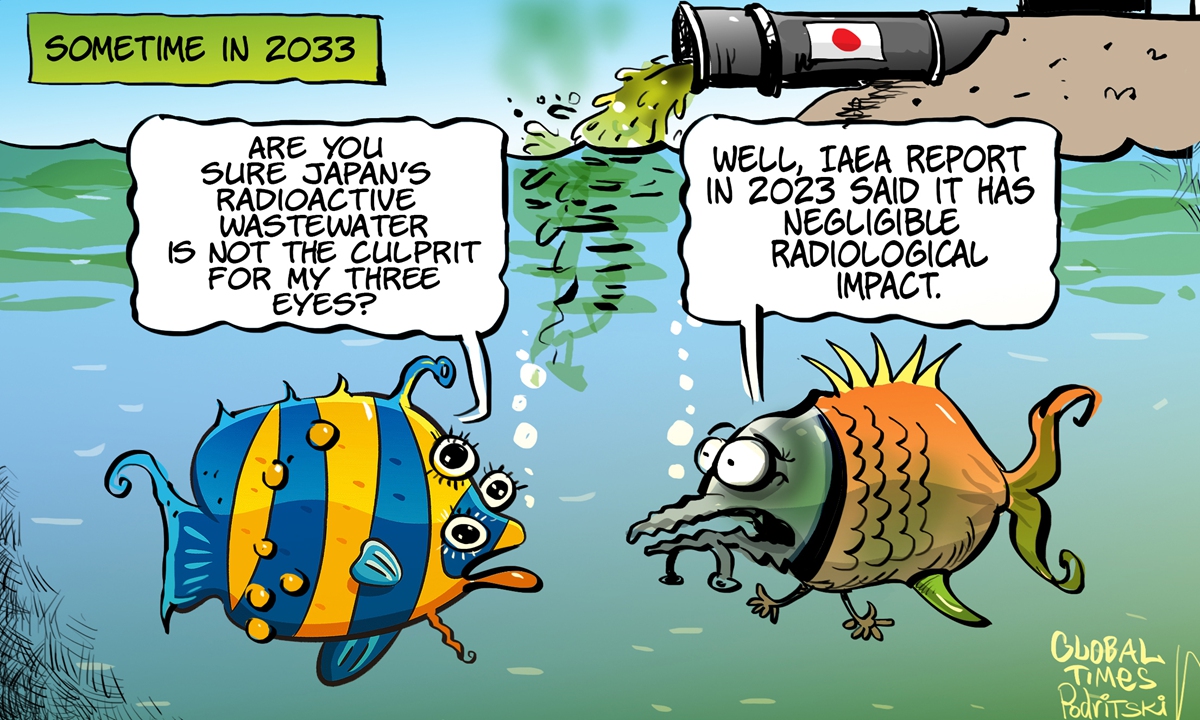
Is the impact of Japan's radioactive wastewater dumping truly negligible? Illustration: Vitaly Podvitski
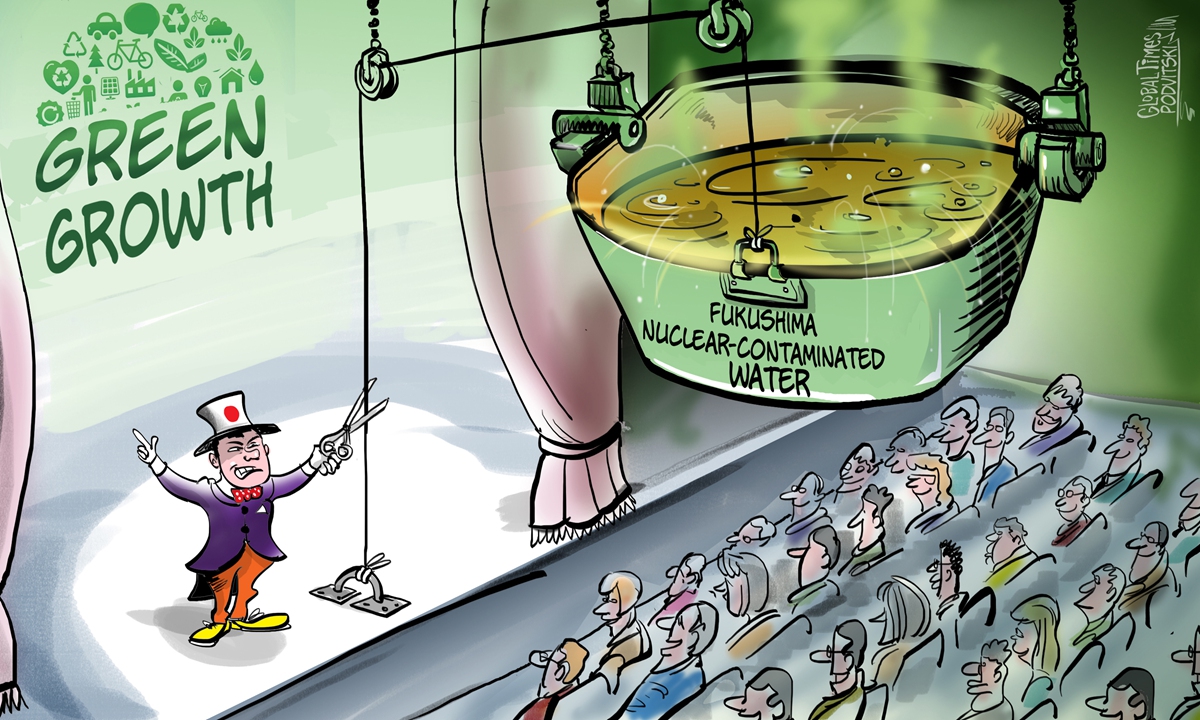
Japan's green hypocrisy. Illustration: Vitaly Podvitski
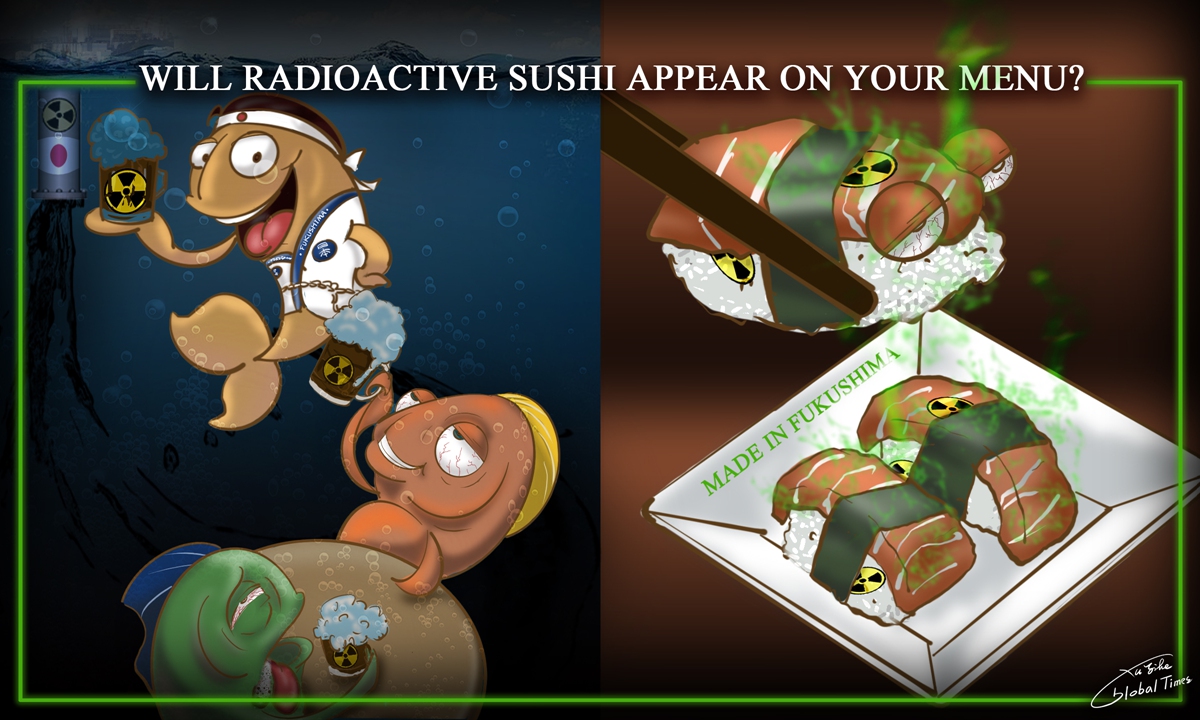
Will radioactive sushi appear on your menu? Illustration: Xu Zihe/GT
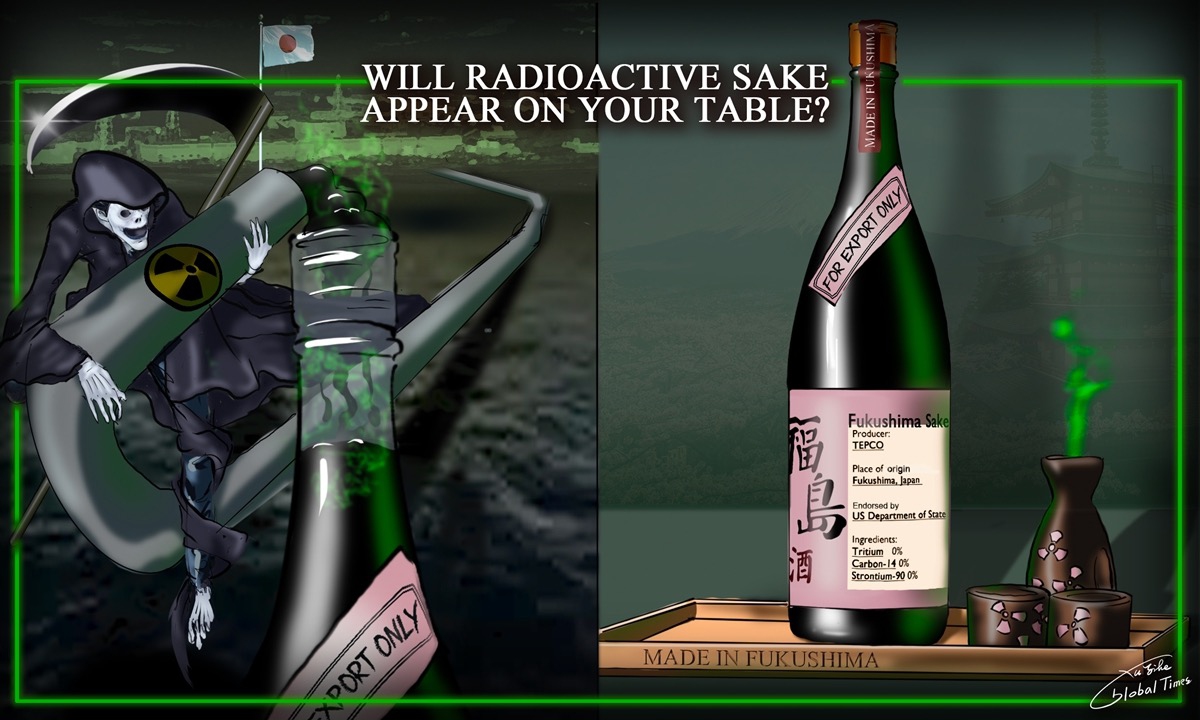
Will radioactive sake appear on your table? Illustration: Xu Zihe/GT
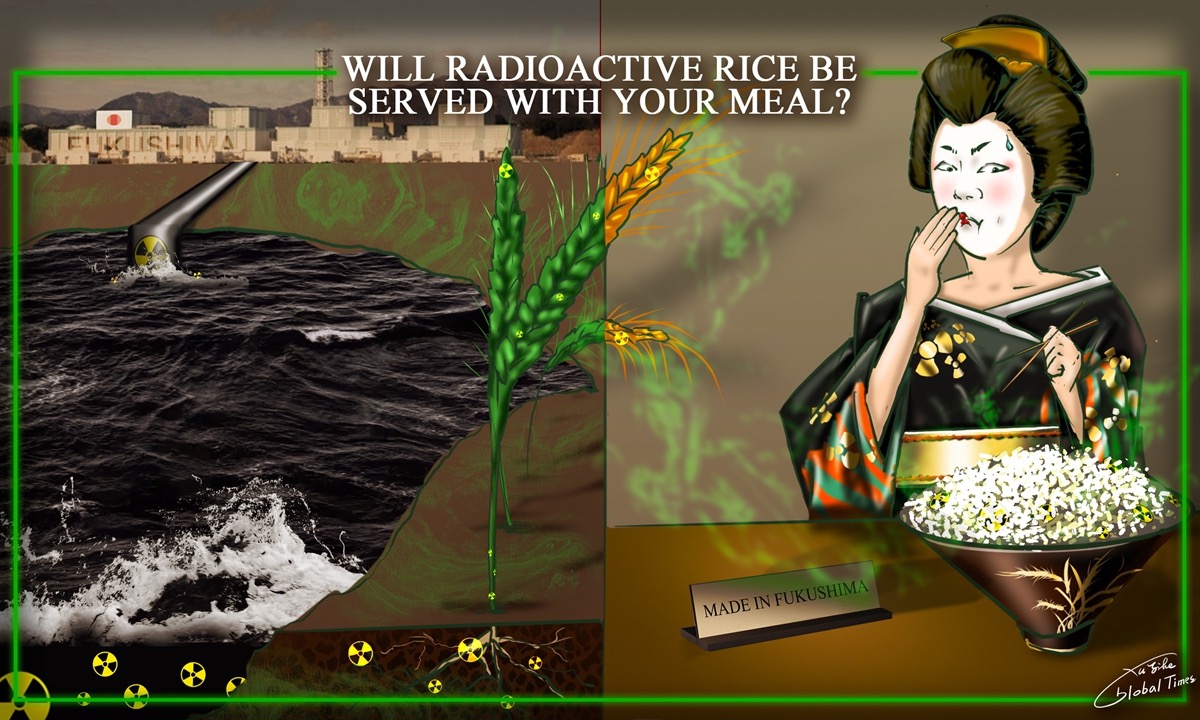
Will radioactive rice be served with your meal? Illustration: Xu Zihe/GT
